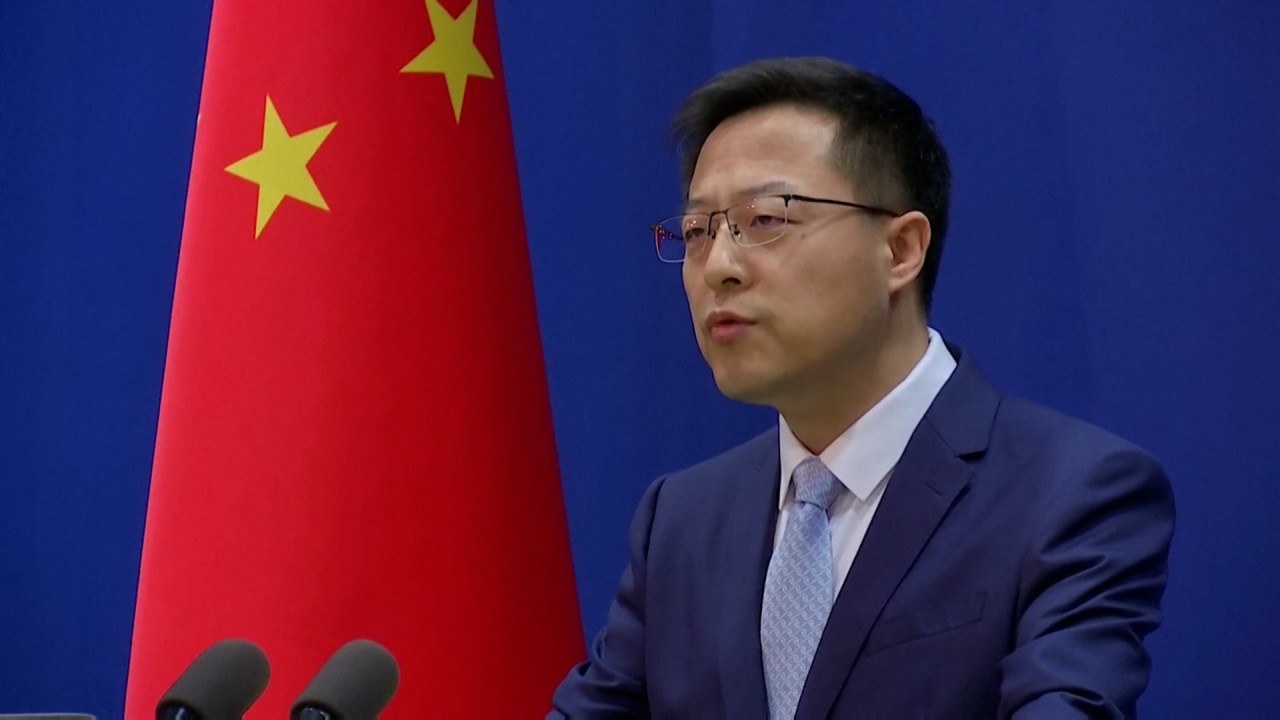
China warns Japan against stoking military tensions over Taiwan
- Chinese foreign ministry lashes out after Japanese defence chief says Nansei Islands are a source of concern
- Beijing says it will safeguard its territory and Tokyo should not stretch too far
In an interview with Nikkei newspaper on Wednesday, Japanese Defence Minister Nobuo Kishi said the country could take a “radically different approach” to counter Beijing’s growing military strength.
Kishi said the military balance between Japan and China had “leaned heavily toward China in recent years, and the gap has been growing by the year”.
“The security environment surrounding Japan is changing rapidly, with heightened uncertainty. We will properly allocate the funding we need to protect our nation,” he said.
Kishi said the Nansei Islands, a chain known as the Ryukus in Japan and that stretches from the southernmost of the Japanese mainland to Taiwan, were a major area of concern.
Chinese envoy to Japan slams Quad as ‘100 per cent outdated’, says Beijing wouldn’t seek to seize disputed Diaoyus
Chinese foreign ministry spokesman Zhao Lijian responded on Friday, saying Japan should “stop disinformation and slander” against China.
“Japan’s irresponsible remarks are stoking military competition, stirring up regional tensions, provoking military confrontations and meddling in Taiwan issues,” Zhao said.
He warned against interference in Taiwan, a self-ruled island Beijing vows to bring back into its fold, by force if necessary.
“Japan has always had a small group of forces obsessed with the old dream of militarism and they are trying to get their hands on Taiwan,” Zhao said.
“We have to tell the Japanese side that our will to safeguard its security and territorial integrity is as firm as a rock and that Japan should not stretch its hands too far.”

01:46
China slams US-Japan joint statement
In the statement, Japan also promised to bolster its defences “to further strengthen the alliance and regional security”.
Japan has spent heavily on personnel for its self-defence forces, US military bases in the country and development of its ballistic missile defence and space development, but its pacifist constitution prohibits its military from using force to settle international disputes.
China says Japan’s military drills with France, US are a waste of fuel
Liu Jiangyong, a Japanese affairs expert at Tsinghua University in Beijing, said Kishi’s remark could be “a trial balloon” in a push for constitutional reform but an increase in military spending to 4 or 5 per cent was unlikely soon.
“But what is worth noting is that the so-called defence budget is not only for defending Japan but an increasing part of it would be invested in the US-led global military strategy so that Japanese military, even in the case of no attack, could join the US and fight overseas, which also raises its so-called defence input,” Liu said.
Song Zhongping, a Hong Kong-based military commentator, said that while Japan might seek to strengthen its military, Beijing might “maintain strategic focus in response to the changing environment in the neighourhood”.

